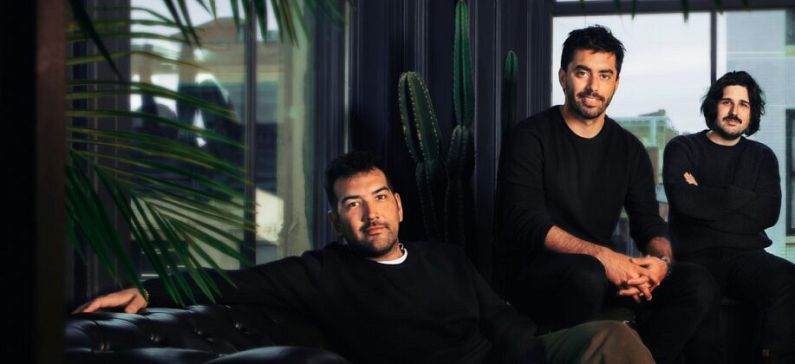
Greek entrepreneur’s innovative startup sets Hollywood on fire
The debate on the ethical part of the ever galloping AI technology has been well and truly open for several months now, with several professional industries realizing that in the long run, their survival is threatened. One of these sectors is that of art and especially film.
A few days ago, actors and writers on the other side of the Atlantic went on intense strike action, with the central issue being the impact of genetic artificial intelligence on the industry and their jobs. Right across the street from Runway, the start-up of the energetic 32-year-old Greek Anastasis Germanidis, which he created with Chileans Cristobal Valenzuela and Alejandro Matamala. The rapid development of the company is self-evident, as while it has been operating for a relatively short period of time, in the summer it managed to raise $141 million from Nvidia, Google and Salesforce, so that today, its capitalization stands at $1.5 billion, according to international media reports.
Mr. Germanidis, a graduate of Athens College, studied Computer Science at Wesleyan University in the US and then attended graduate school at New York University to explore new technologies in a creative way. In graduate school he met the other founders. “We were trying to see how machine learning and artificial intelligence can help the work of directors, designers, etc. So we realised that with artificial intelligence one can produce a lot of things faster based on ideas. We saw an opportunity in this industry,” he recounts.
Valenzuela, who is also the company’s CEO, in a recent interview, was not willing to dismiss the concerns of writers and actors about AI producing films or replacing their jobs in the film industry, but he believes that the conversation around Hollywood and AI “needs to be more nuanced.”
“I sympathize with the arts community that may feel threatened or that may have questions,” he said. “At the same time, when you talk to creators or filmmakers, you start to understand that it’s different from a singular view that this is going to replace everything, because it’s not – it’s going to augment a lot of other things.”
How it works
With the simple text to video technology and within a description of up to 200 characters, the platform is able to produce in less than 2 minutes, a short film, a video clip, an advertising campaign and all this, with sounds, special effects, protagonists. And the result is so realistic and nothing like the way they have been created.
Through Runway’s software (generative AI), the brainchild of 32-year-old Anastasis Germanidis and his Chilean collaborators, entire short films have been created, even scenes from films such as the 7 Oscar-winning “Everything Everywhere all at Once”. Based on technology similar to that which made ChatGPT popular, it is designed as a “co-production” tool that works with the creator”, as Mr. Germanides himself clarifies in an interview and continues: “When we launched Runway in 2018, one of our visions was to build text to video technology, which took us 4-5 years to complete.”
“With Runway’s AI model, you can describe anything and it will make it for you. From objects, to the style you want the video, film, frame, etc. The director’s thought is captured in a few words and transformed into a film scene. At the moment the AI model within 1 minute can produce a 4-second scene, which of course we are improving all the time”, explains Mr. Germanides and continues: “Our technology is used by Hollywood directors and advertising companies. Several of them use the tool for previsualisation, i.e. to see how a film can be made before they shoot it.”
In an attempt to differentiate the technology with the reactions of the writers, he explains that “not all of the film has to be shot through AI. Some people use it to create something that is difficult or dangerous to shoot in the real world. Also, everything is done much faster and at a lower cost” and gave the example of director Paul Trillo, who launched the short film “Thank you for Not Answering” using purely AI technology. The AI model “has been trained by us. It’s trained by constantly ‘watching videos’ and getting to the point of producing them itself.That’s why we invest in research and the right human resources. Nvidia and Google are companies with expertise in AI whenever they understand how skilled teams are needed to build such models.”
As he explains when speaking to Kathimerini, “People are and will always be at the centre. Everything produced with technology is based on ideas, vision and the stories you want to tell,” he says, adding that Runway enables young creatives to “do what they couldn’t do because they didn’t have the right tools.”
Runway’s goal is “to produce a two-hour film with our technology, which I predict will happen by the end of 2024. Our goal is not to replace the artists but to work with them. When photoshop came out everyone thought it would distort reality, but it turned out to make a lot of people more creative, able to produce their ideas faster. The same is expected to happen with generative AI models.”








